European markets down and Asian chipmakers tumble in global stock sell-off amid worries over AI bubble – as it happened

Jim Reid, analyst at Deutsche Bank, said there is talk of whether we are “on the verge of an equity correction”.The last 24 hours have brought a clear risk-off move, as concerns over lofty tech valuations have hit investor sentiment.Markets compounded these losses in the early hours of Asian trading but have been rallying back in the couple of hours prior to going to print with US futures clawing back towards flat with the Kospi rallying back a couple of percentage points from early -5% plus losses.On Wall Street yesterday, the S&P 500 closed down 1.17%, losing ground because of sharp losses among tech stocks, and there was a big slump for Palantir (-7.
94%) after its earnings the previous day.Reid added:Whilst the moves were only one day’s selloff, the market narrative saw a discernible shift, with a growing chorus discussing whether we might be on the verge of an equity correction.That speculation has gathered pace over the last month in particular, mainly because the Magnificent 7 has diverged from the rest of the S&P 500, which has revived questions about how concentrated this equity market now is.Indeed, whilst the Mag 7 have been advancing in recent weeks, the equal-weighted S&P 500 actually fell in October for the first time in 6 months.Yesterday’s decline for Palantir (-7.
94%) was seen as emblematic of this shift, particularly given they’d actually raised their revenue outlook the previous day.But given their share price had quadrupled in the last year, that’s set the bar incredibly high for any earnings releases.In fact, the Magnificent 7 (-2.28%) led the declines yesterday, with Nvidia itself down by a larger -3.96% as some of those top-performing stocks came under scrutiny.
With this, we are wrapping up for the day,Our main stories:Thank you for reading,We’ll be back tomorrow,Take care! – JKWall Street stocks have opened slightly higher, amid a slew of company results,The S&P 500 and the Dow Jones Industrial Average both rose by 0.
1%, while the Nasdaq composite was flat initially and is now up 0.3%.Taser maker Axon Enterprise shares slumped 18% after forecasting weaker profits than analysts were expecting.Live Nation Entertainment fell by 7.2% after its latest results also fell short of analysts’ forecasts.
On a brighter note, McDonald’s rose by more than 3% after reporting that its sales benefited from the return of its popular Snack Wraps in the third quarter.Over here, the FTSE 100 index in London gained 0.7% to 9,780 reversing earlier losses, while the other main European indices also turned positive.Gas and electricity firm Tomato Energy has collapsed and the industry’s watchdog has stepped in to protect supply for the provider’s 15,300 household and 8,400 business customers.Ofgem, the regulator, said Tomato Energy has today announced it is ceasing to trade.
Under The Supplier of Last Resort (SoLR) safety net, customers’ energy supply will continue and funds that domestic customers have paid into their accounts, including existing credit balances, will be protected.Domestic customers will also be protected by the energy price cap when being switched to a new supplier.Customers will be contacted by their new supplier, which will be allocated by Ofgem in the coming days.Ofgem’s advice to affected customers in the meantime is to take meter readings and wait for a new energy supplier to contact them.Once they have been contacted, customers can ask to be put on their new supplier’s cheapest deal, or look for an alternative deal from another supplier.
They will not be charged exit fees for switching away from their new supplier.Rohan Churm, Ofgem’s director for financial resilience and control, said:I want to reassure Tomato Energy customers that they do not need to worry.They will not see any disruption to their energy supply, and any credit domestic customers have on their accounts remains protected under Ofgem’s rules.We are working quickly to appoint a new supplier for all existing customers, and they should not switch in the meantime.Once appointed, a new supplier will be in touch with further information.
We have worked hard to improve the financial resilience of suppliers in recent years, implementing a series of rules to make sure they can weather unexpected shocks.But like any competitive market, some companies will still fail from time to time, and our priority is making sure consumers are protected if that happens and that any associated costs are minimised.George Osborne told MPs today that he regrets making steep cuts to investment spending in the coalition government, though he said there were strong political and economic reasons at the time for rejecting calls to change course.The former chancellor said he increased investment spending compared to the deep cuts scheduled by his predecessor, Labour’s Alistair Darling.But he said looking back there was a good argument that it should have been higher.
Asked by Treasury committee member and Labour MP Yuan Yang why he rejected using low interest rates when he was in charge of the Treasury from 2010 to 2016 to increase investment spending, he said:With the passage of time you look back on it and think maybe that was the wrong thing and we should have rethought the capital budget.We definitely cancelled things that we later had to reinstate, which was not ideal.But if we had massively increased the capital budget it would have put more pressure on current spending at a time when we had a high budget deficit.It would also have put more pressure on us to raise taxes.Sir Vince Cable, a former business secretary who was also quizzed by the committee ahead of the budget on 26 November, said senior civil servants warned him that the bond markets were extremely concerned about the level of the UK’s annual deficit and the rising level of debt.
They said the bond markets don’t distinguish between capital and current spending, it all borrowing,And that’s the argument that was thrown back at us,I think with hindsight, this is one area where we caould have taken a different track,” said cable, who was business secretary in the coalition government,Osborne added that Rachel Reeves, the current chancellor, should protect investment spending in the budget and would need to announce “unavoidable” tax hikes to balance the books,However, he said the chancellor should demand deep reforms from Whitehall departments in return for extra cash.
Osborne and Cable said there should also be tax reform such as merging income and national insurance levies and scrapping fuel duty relief.Osborne said it would be “messy” to make small adjustments and it would be “easier to go for one of the big three taxes: income tax, national insurance or VAT” while overhauling the system.He revealed that tax reform he had considered with Liberal Democrat Treasury ministers when the two parties were in a coalition was overruled by then-prime minister David Cameron in favour of smaller changes, leading to the so-called “pasty tax” in his 2012 budget he was later forced to row back due to a backbench rebellion.Osborne told the Treasury committee they had agreed to introduce two additional bands of council tax for high value properties in order to cut the top rate of income tax from 50% to 40%.And then for perfectly good, sound political reasons, David Cameron felt the Conservatives had promised not to have a mansion tax.
And so we settled on 45% and a series of small taxes, including taxes on hot food to pay for it.“That is a good example of tax reform being quite hard when you’re trying to raise taxes.Osborne argued the chancellor should merge income tax and national insurance as “it’s sort of odd we have two taxes on income”.The two former cabinet ministers appeared before the cross-party panel of MPs as part of its series looking ahead to the Budget.Reeves is widely expected to rip up Labour’s manifesto pledge not to raise certain taxes in three weeks’ time by increasing the basic rate of income tax.
The FTSE 100 index in London has reversed earlier modest falls and is now trading 0.3% higher at 9,746.Other European indices are flat to slightly lower.US stock futures are now pointing to a flat open on Wall Street, after the ADP jobs data.The 42,000 jobs gain in October tracked by ADP Research partly offsets a combined 30,000 decline in August and September, but the broader trend in hiring remains weak, analysts say.
Thomas Ryan, North America economist at Capital Economics said:The 42,000 rebound in ADP private employment in October lends support to the view that firms are resuming hiring now they have more clarity on trade and immigration policy,That said, the usual caveat applies that the ADP series has historically been a poor guide to official non-farm payroll estimates,The employment gains were concentrated in trade transportation and utilities (+47,000), education and health services (+25,000) and finance (+11,000),Professional and business services and other services both shed a large number of jobs, while employment fell in manufacturing too,By business size, essentially all of the gains stemmed from large firms with 500+ employees.
Ryan said:Even if the government shutdown ends this week, the Fed may still lack official payroll data before its December 10th announcement due to disruptions in data collection.In that case, this release – while imperfect – suggests the labour market has at least stabilised in recent months but still lacks real momentum, leaving our call for a December interest rate cut intact.In the United States, private employers added 42,000 jobs in October, a rebound from a couple of months of weak hiring, according to a closely-watched report.ADP Research said the bounce wasn’t broad-based, though, with education and healthcare, and trade, transportation, and utilities leading the growth.For the third month in a row, employers shed jobs in professional business services, information, and leisure and hospitality.
Nela Richardson, ADP’s chief economist, said:Private employers added jobs in October for the first time since July, but hiring was modest relative to what we reported earlier this year.Meanwhile, pay growth has been largely flat for more than a year, indicating that shifts in supply and demand are balanced.“It’s ‘no hiring, no firing’ for now,” says Heather Long, chief economist at Navy Federal Credit Union.ADP jobs report shows +42,000 jobs added in October.That's weak hiring, but better than the prior two months.
But...look at the industry breakdown.A lot of sectors are still shedding jobs, especially white-collar jobs:Manufacturing -3,000Information -17,000… pic.
twitter.com/rPgsT7PAekMeanwhile, on the car loan scandal, the Lloyds boss Charlie Nunn has hit out at the City watchdog’s proposed £11bn compensation scheme, saying it will hand “windfall” payouts to borrowers that weren’t actually harmed, and wipe out 20 years of profitability across the car loans sector.He also repeated comments he’s made previously, that this was a “deeply important investability issue for the UK.” The Lords Financial Services Regulation Committee momentarily turned its attention to the compensation scheme, which is currently out for consultation, but on Wednesday morning had its deadline for responses pushed out nearly a month to 12 December (a date which notably puts it on the other side of the looming autumn budget).Nunn said the scope of the Financial Conduct Authority’s scheme, which is expected to provide redress for borrowers of 14m unfair loans between 2007-2024, was going to hit bank finances while handing out unwarranted payouts to former borrowers.
Nunn said:When we look at the impact of the scheme as it’s currently proposed, it would result in what we think would be a significant number of customers getting a windfall outcome that isn’t linked to harm and wouldn’t be fully proportionate.He added:Having a scheme like this that would take away more than 20 years of the profitability of this sector, is a really difficult issue for both global companies looking to invest in the UK and for that matter, my investors looking to invest in financial services.So there’s a deeply important investability issue for the UK.The Lloyds CEO also took a swipe at the money behind the claims industry, which he said had been pushing customer claims through the courts.They’re funded, by the way, by largely international private equity, limited litigation funds, often that are based in Bermuda and other locations like that.
It’s a very important part of this ecosystem that’s been created in the UK in a way that hasn’t been supported in most other jurisdictions in the world.So, look, we are concerned about how that’s developing.Lloyds chief executive Charlie Nunn has warned he would be “concerned for the future of the UK” if regulators heaped further burdens on banks to deal with the growing risks emanating from their rivals in the shadow banking industry.Nunn told the Lords Financial Services Regulation Committee on Wednesday that he welcomes reviews of the potential risks and interconnections between traditional banks and private credit industry by both the Bank of England and international bodies like the Financial Stability Board.However, Nunn said banks - which increasingly provide loans to private credit funds and their portfolio companies - should not be left to shoulder extra rules and reporting requirements, particularly for a private credit industry dominated by US firms.
We need to manage our risks,But we need to be very careful to not make the banks accountable for the risks of the non-bank sector, or providing that transparency - otherwise, it will make us less competitive,And we do believe that transparency is needed,It would be absolutely right for the regulators to determine how to manage that risk directly through the sector, not through the banking sector,And I would be concerned for the future of the UK if it were to go down that path, especially in the international competitiveness environment we’re currently in.
It comes as the private credit industry, which is largely unregulated, comes under greater scrutiny after two US company bankruptcies - First Brands and Tricolor - and warnings from the International Monetary Fund and the Bank of England.The Bank of England’s governor, Andrew Bailey, said last month that the recent failures had worrying echoes of the sub-prime mortgage crisis that kicked off the global financial crash of 2008.Meanwhile, the IMF warned that a downturn could have ripple effects across the financial system, given that banks were increasingly exposed to a largely unregulated private credit industry.Nunn said Lloyds itself did not lend to the private credit sector.The Bank of England is currently preparing a stress test to determine whether the booming private credit risks amplifying shocks across the UK’s financial system.
More detail is expected by the end of the year.US stock futures are pointing to a lower open on Wall Street later, as investors are retreating from AI-linked stocks for a second day – amid fears over ballooning technology valuations and ahead of data that could shed light on the health of the US labour market.Yesterday, the tech-heavy Nasdaq lost 2% in its biggest one-day loss in nearly a month.In Asia, the Japanese and South Korean stock markets slumped by 2.5% and 2
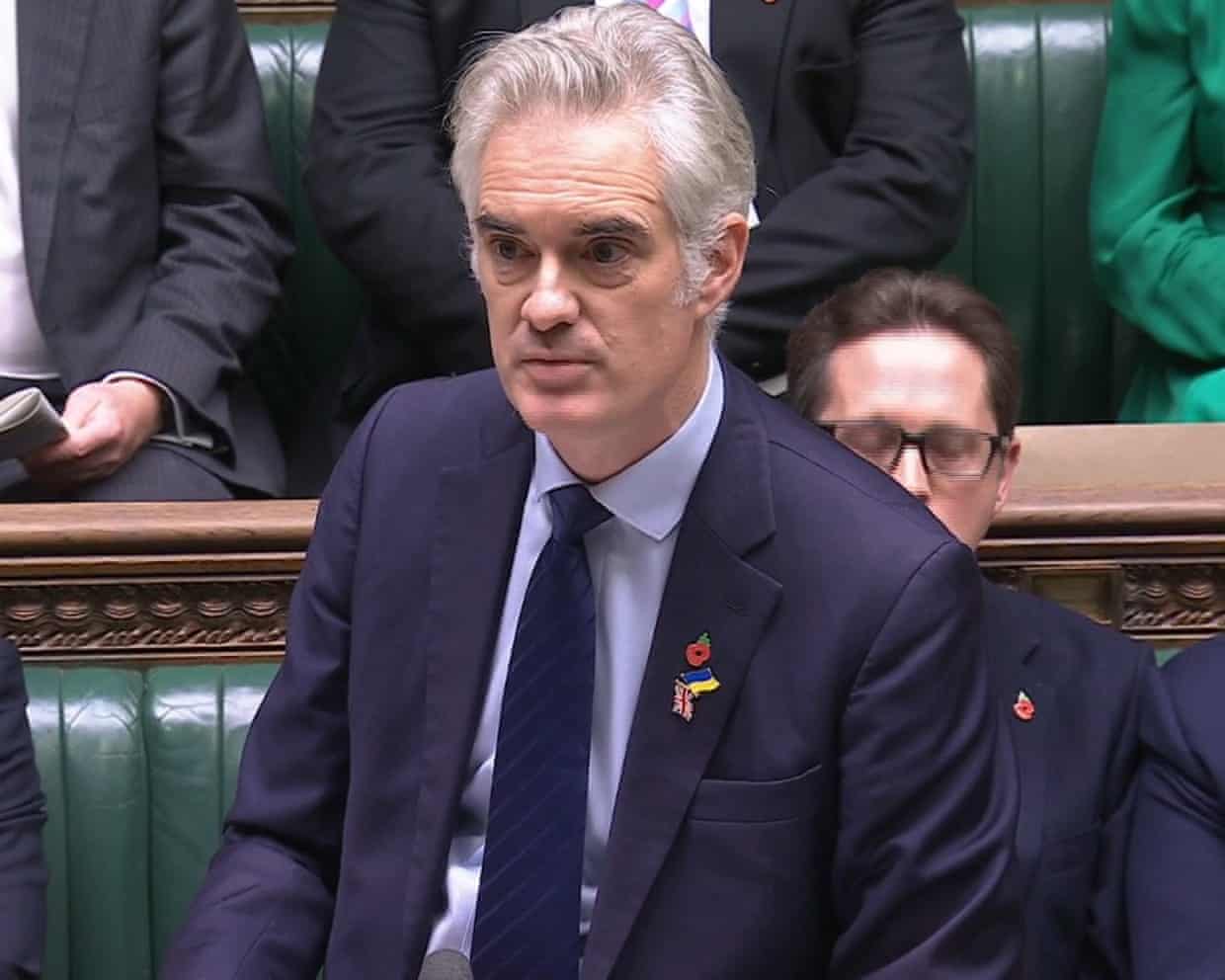
Miscounting to six costs Tory stand-in his gotcha against poppy-shock Lammy | John Crace
He had one job. ONE. JOB. Well, technically there might have been two, but we’ll come to that later. But one main job
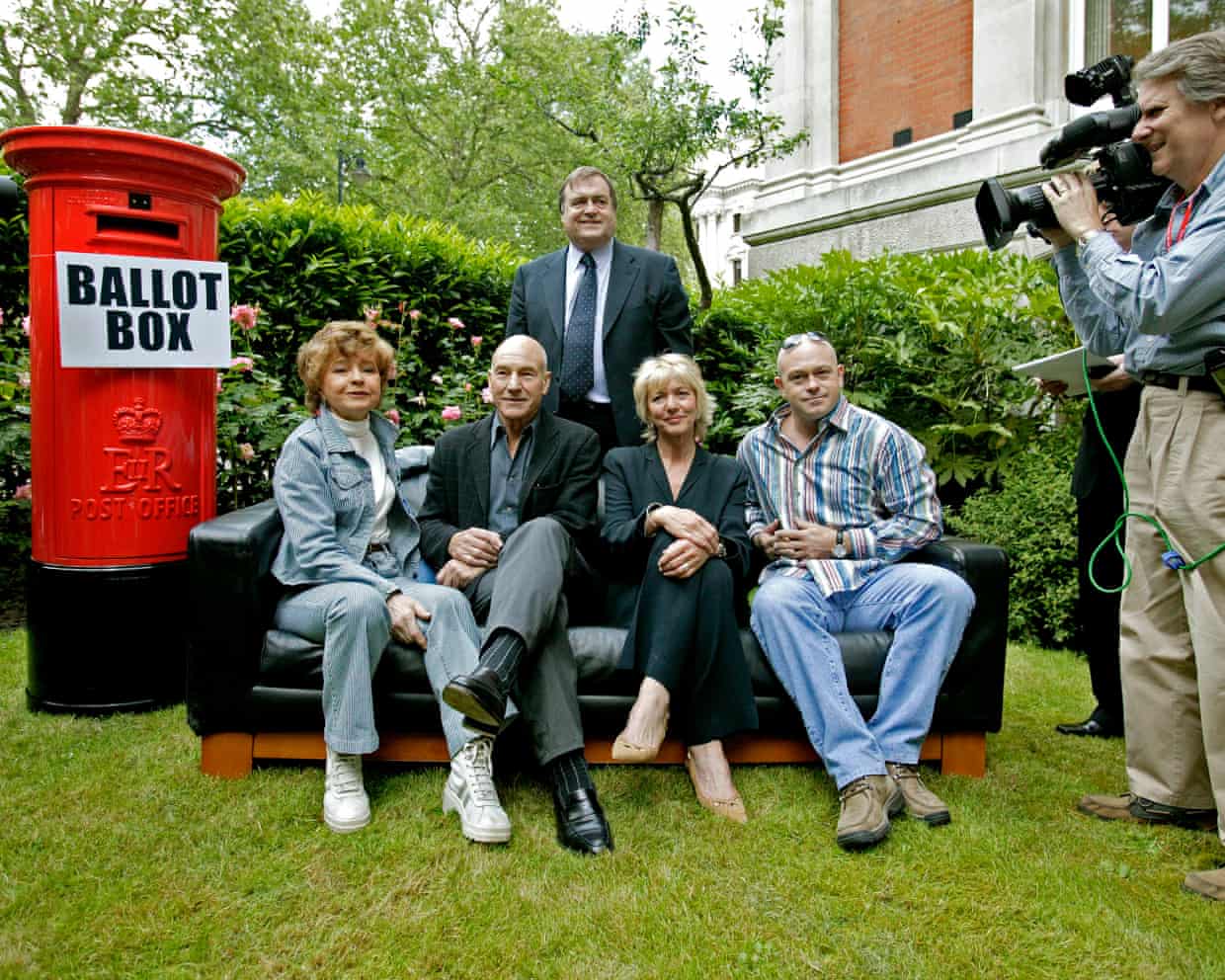
Letter: Prunella Scales obituary
Prunella Scales was not only a brilliant comic and dramatic actor, she was a great, deeply political citizen.As an active, and often leading, member of her trade union, Equity, she demonstrated solid commitment to, and earned respect from, her fellow professionals. And, like her beloved husband, Tim West, she was a dedicated member of the Labour party.She also supported CND, the Anti-Apartheid Movement, the Anti-Nazi League and the women of mining communities, as well as undertaking extensive charity work. She would say: “Sometimes, dear, it’s useful to stand up and show that you are taking action and not acting
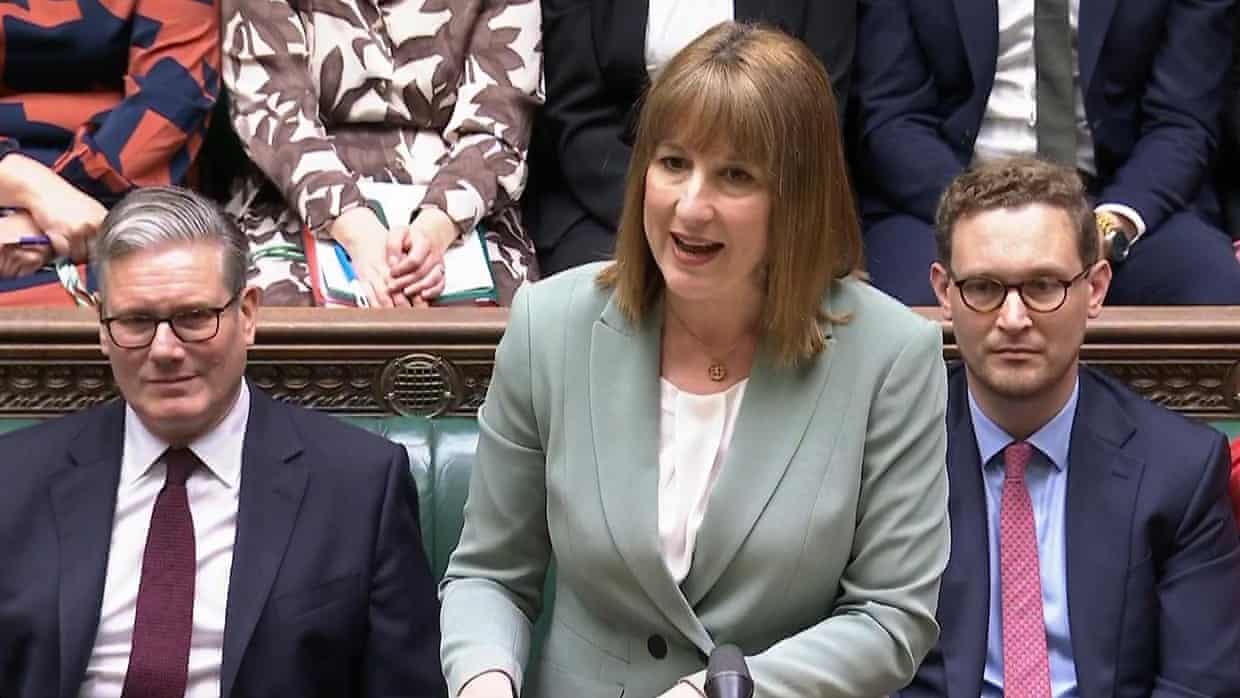
Reeves refuses to say she will stick to manifesto pledge on tax rises and insists she must face world ‘as it is’ – as it happened
It is probably now all but certain that Rachel Reeves will break Labour’s manifesto promises and put up income tax in the budget. That is where the commentariat consensus is, five hours after the chancellor’s speech this morning.That is not something we can report yet as fact. But the hints in the speech this morning went beyond “the clearest sign yet (that income tax will rise)”, to use one of the essential cliches of political journalism.There is a category of information where something isn’t quite a fact, but it is so widely assumed to be right that it might just as well be
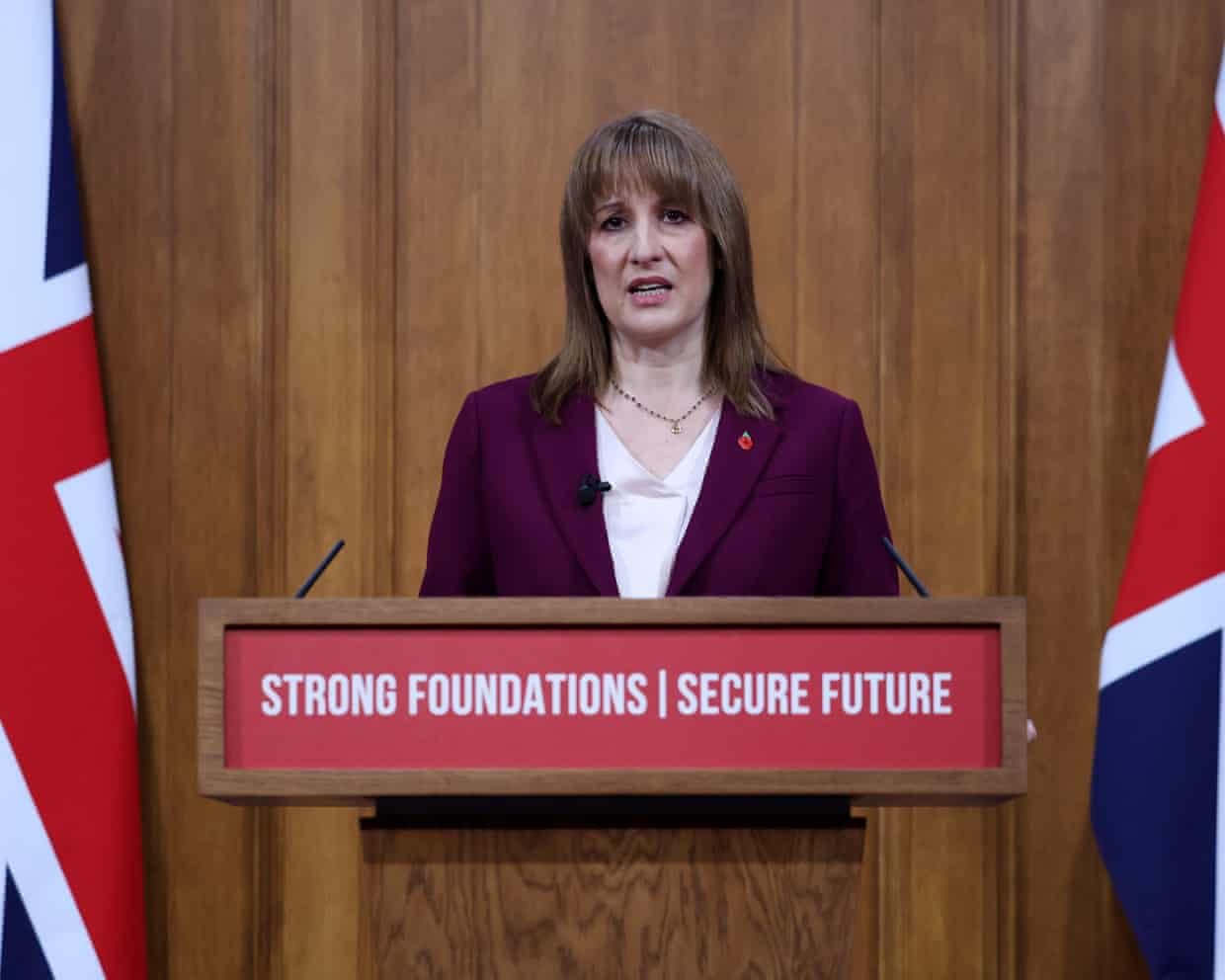
Reeves wants to talk about the budget, but she’s taken a vow of white noise | John Crace
It’s this season’s fashion accessory for every politician. Outside election campaigns, press conferences usually signal major set piece events or a national emergency. Now you can’t move for them. Reform have had four inside a week with another one lined up for tomorrow. Even Kemi Badenoch has been at it with a bizarre outdoors show-and-tell last Thursday
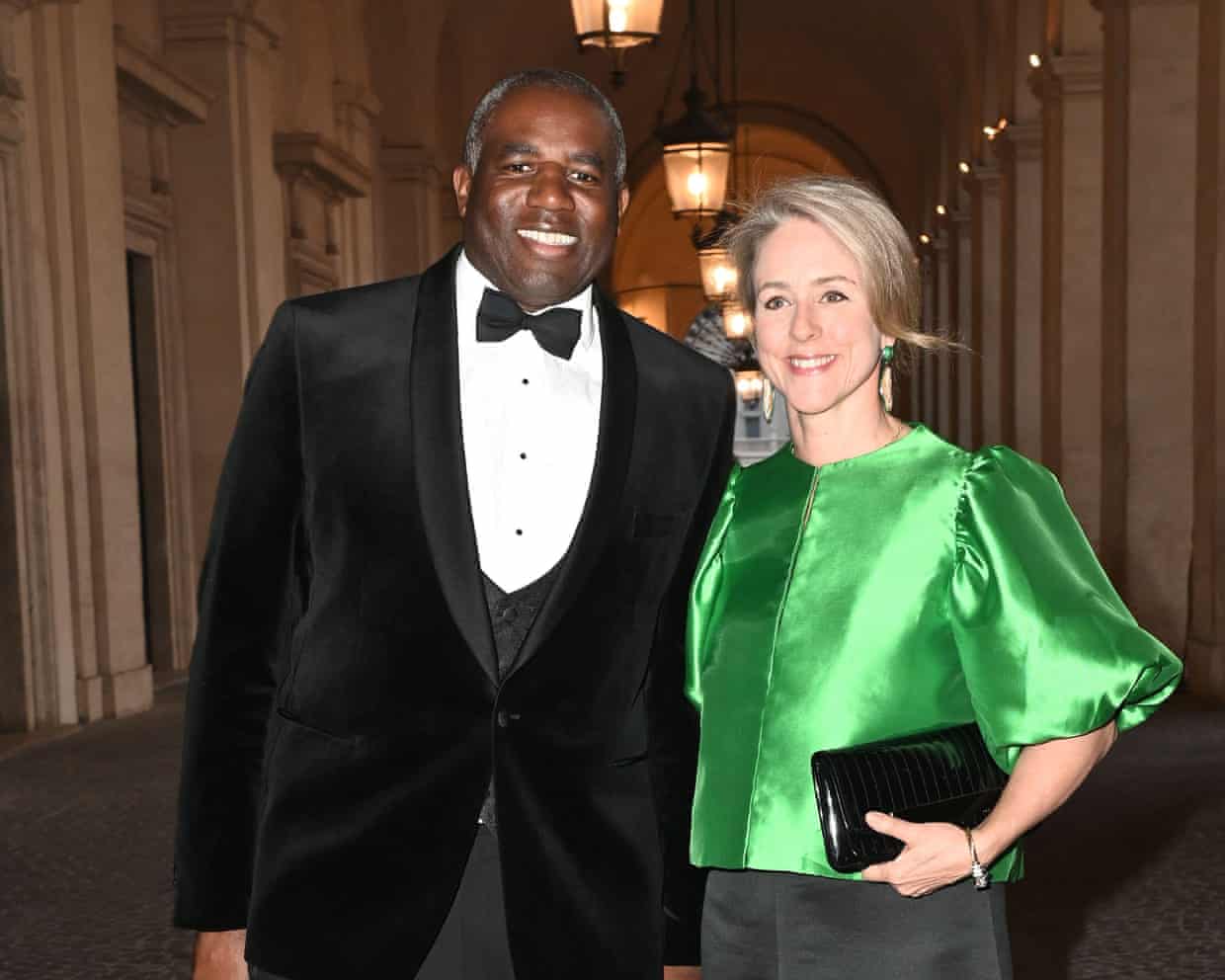
French taxi driver cleared of stealing from David Lammy after fare dispute
A French taxi driver accused of stealing money and luggage from David Lammy has been acquitted due to lack of evidence, a prosecutor said.Nassim Mimun, 40, drove the deputy prime minister and his wife, Nicola Green, more than 600km (370 miles) from Forli, near Bologna in northern Italy, to the ski resort of Flaine in the French Alps on 11 April.But at the end of the journey the “tone escalated” over the cost of the fare, the Bonneville prosecutor Boris Duffau said in May.The driver, from the south-eastern city of Avignon, then left with his passengers’ bags in the boot of his car. “He dropped them off the next day at a municipal police station” but that was considered theft due to the length of time he had them in his possession, Duffau said

Starmer was briefed on Mandelson’s Epstein links before appointing him, say civil servants
Keir Starmer was briefed on details of Peter Mandelson’s relationship with Jeffrey Epstein before he decided to make him US ambassador, senior civil servants have said.The prime minister received a Cabinet Office report that contained “a summary of reputational risks” associated with appointing Lord Mandelson, including his “prior relationship with Jeffrey Epstein” and past resignations as a Labour minister.Chris Wormald, the cabinet secretary, told MPs that the report contained “direct extracts from media reporting and notes a general reputational risk” arising from making the appointment.Speaking at the foreign affairs select committee, he said the “judgment about whether to make the appointment or not” had ultimately been one for Starmer.Mandelson’s longstanding friendship with Epstein, which continued after the disgraced financier was convicted of soliciting prostitution from a minor, was a matter of public record before his appointment was made

Apple Watch SE 3 review: the bargain smartwatch for iPhone

Experts find flaws in hundreds of tests that check AI safety and effectiveness

OpenAI signs $38bn cloud computing deal with Amazon

Oakley Meta Vanguard review: fantastic AI running glasses linked to Garmin
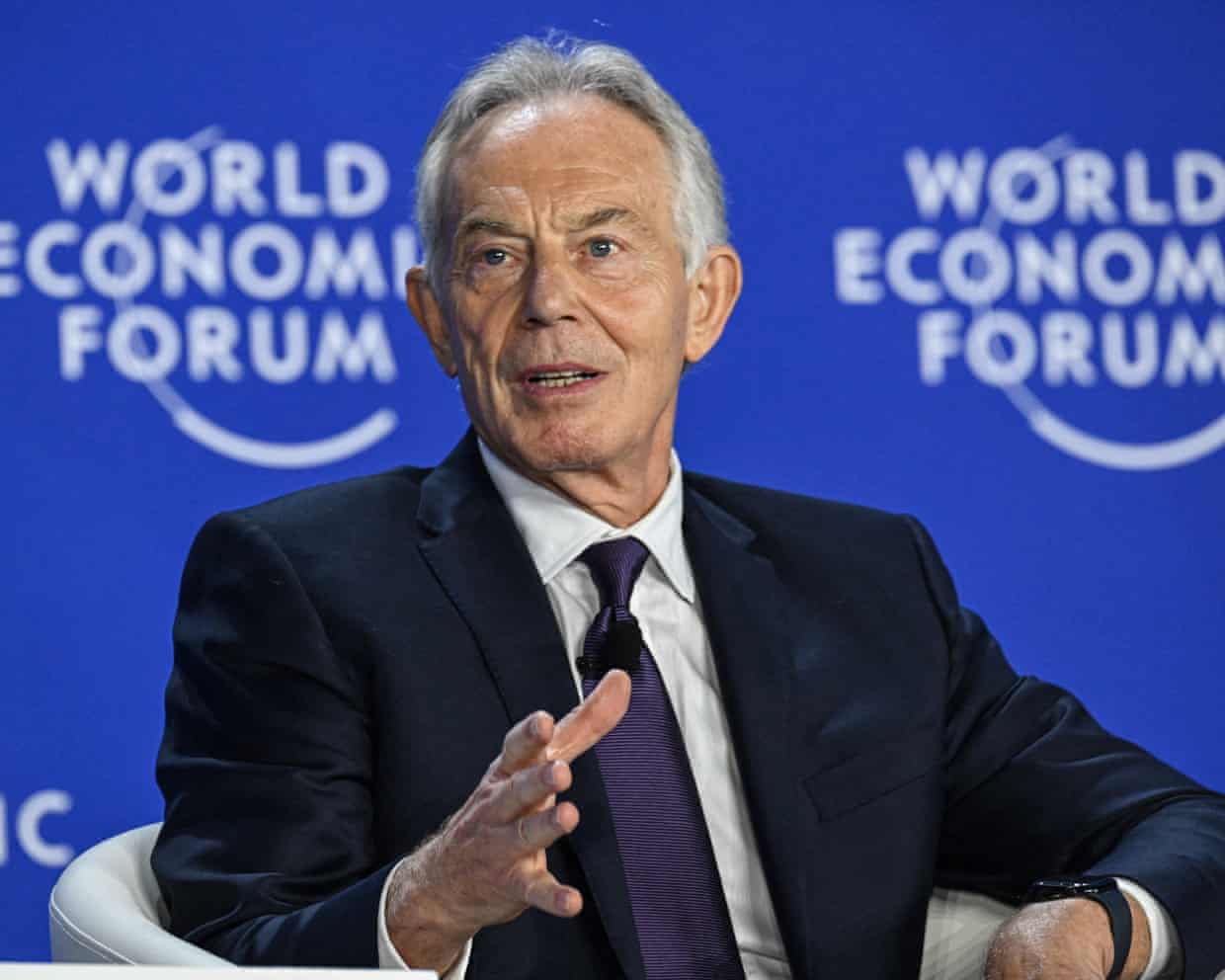
‘History won’t forgive us’ if UK falls behind in quantum computing race, says Tony Blair

In Grok we don’t trust: academics assess Elon Musk’s AI-powered encyclopedia